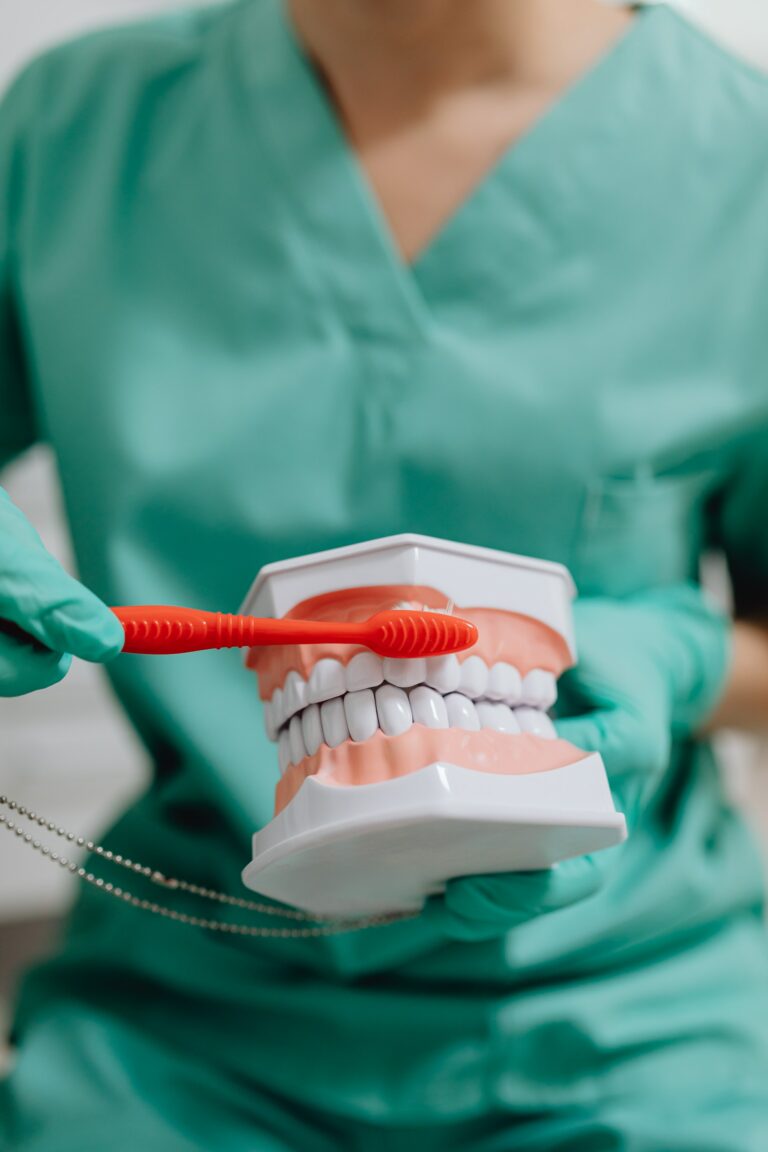
Can My Teeth Tell Me about My Health?
AARP’s recent article entitled “8 Surprising Things Your Teeth Can Tell You About Your Health” gives us some signs that our teeth can say about out health.
- Damaged tooth enamel can be a sign of eating disorders. While bulimia and anorexia are most common in young women, studies show that 13% of American women over 50 have signs of eating disorders. Bulimia is an illness characterized by a cycle of binge eating and self-induced vomiting, often leads to tooth damage. Acid created in the stomach by vomiting erodes the inner enamel or thin outer coating of the teeth. Anorexia is also a serious illness characterized by weight loss, difficulty maintaining an appropriate body weight, and distorted body image. Many people with bulimia are also anorexic, so those with anorexia may also have damage to their tooth enamel.
- Pale gums can be a sign of anemia. Anemia is a condition that develops when not enough rich, healthy red blood cells are produced in the body. This makes a person feel weak and tired. It can also cause shortness of breath, dizziness, headaches, and an irregular heartbeat. About 10% of the 35 million people in the U.S. over 65 are considered anemic.
- Osteoporosis can put people at risk for tooth loss. This is a bone disease that develops when bone density, mass, and structure in the body changes and can result in loss of bone strength and risk of bone fractures. About 54 million Americans have osteoporosis and low bone mass.
- Complications of kidney disease can lead to tooth loss. When the blood can’t be filtered properly, the result is kidney disease. Those with kidney disease often have compromised immune systems and chronic inflammation. A compromised immune system is susceptible to the overgrowth of bacteria or fungus in the body, which can lead to periodontal disease. This is a common bacteria-induced inflammatory disease that causes bleeding gums, wobbly teeth, and tooth loss.
- Oral thrush can be a sign of HIV. This is a fungal infection caused by a fungus called candida, which is normally present in low numbers in the mouths of many people. The problem happens when there’s an overgrowth of candida. This can be caused by several factors, including a compromised immune system.
- Acid reflux can cause damage to tooth enamel. Acid reflux happens when the contents of your stomach or stomach acid regurgitates into the esophagus. A dentist should easily be able to detect tooth damage by erosion from acid reflux.
- Poor dental hygiene is associated with cognitive decline. This can be a sign of cognitive decline, especially in those who have previously taken good care of their teeth. As brushing, flossing and dental visits become harder, the ability to maintain the health of the teeth lessens. Research has also connected tooth loss to a higher risk of dementia. When a senior who’s previously taken good care of his or her teeth has food debris in the mouth, the lack of self-care could indicate decline. Caregiver support may be needed.
- Teeth grinding can be a sign of sleep apnea. Sleep apnea causes breathing to stop or become very shallow during sleep. The National Sleep Foundation has found that 1 in 4 people with sleep apnea also grind their teeth at night. Untreated sleep apnea is associated with serious health problems like high blood pressure, type 2 diabetes, liver problems, and even dementia.
Reference: AARP (July 22, 2022) “8 Surprising Things Your Teeth Can Tell You About Your Health”
